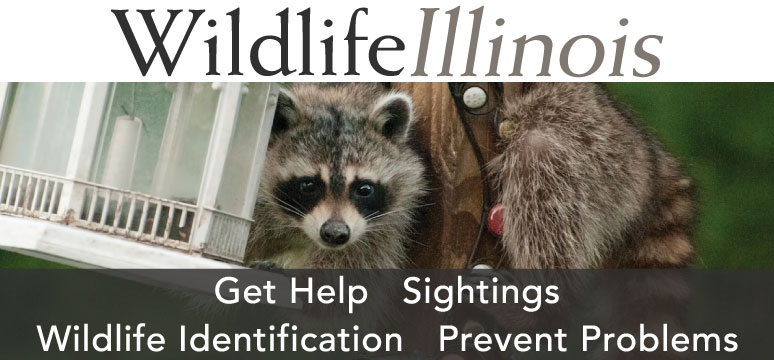
Photo by Michael R. Jeffords


Photo by Michael R. Jeffords
Photos courtesy Dr. Nohra Mateus-Pinilla
Dr. Nohra Mateus-Pinilla has worked at the Illinois Natural History Survey as a Veterinary Epidemiologist since 2000. Originally trained as a veterinarian, she also attained advanced degrees in Veterinary Internal Medicine and Veterinary Epidemiology. As an epidemiologist, Dr. Mateus-Pinilla studies diseases in populations. She focuses on wildlife and domestic animals, and on diseases of public health importance.
“My research is designed to understand the mechanisms of disease spread in herds and ecosystems, to search for intervention strategies that interfere with disease spread, and to minimize negative effects of infectious diseases on herds including their negative economic impacts,” she explained.

Using her 16 years of research on Chronic Wasting Disease (CWD), as an example, Dr. Mateus-Pinilla explained some her work. “CWD is an incurable disease affecting our deer herd; it causes a very slow, agonizing death.” Thus, her interest in “evaluating trends and clusters of CWD cases in relation to landscape characteristics, deer genetic variables and human actions that influence the management and the risk of CWD transmission.” Dr. Mateus-Pinilla’s approach links disease outbreak, prediction, prevention and management.
“Although I did not anticipate becoming a veterinary epidemiologist or having the opportunity to work closely with wildlife biologists, I now recognize health issues in humans, animals and ecosystems as highly interconnected,” she explained. “This intersect opens opportunities for unique collaborative research and disease management efforts. Working with wildlife biologists has been an eye-opening and humbling experience; they work with large-scale systems in support of conservation and ecosystem health—informing perspectives on infectious diseases that affect animal and human health.”
“Biologists in Forest Preserve Districts, U.S. Department of Agriculture and the Illinois Department of Natural Resources have been willing to serve as a resource for my students helping them to see ‘overlooked details’ in the Illinois landscape,” she continued. “Their perspectives and collaborative efforts influence my students and my career as a veterinary epidemiologist.”

With a career spanning nearly 30 years in the veterinary field, Dr. Mateus-Pinilla reflected on the change in gender make up both in veterinary medicine and wildlife biology. The trends include more women in these fields opening their opportunities to complement and contribute to the growth of conservation and population health. She remarked on the value of the increase in collaborations across disciplines to predict and prevent wildlife problems. She also values the interdisciplinary problem-solving approach where the involved parties teach and learn from each other, as we build capacity to address the problems brought be infectious diseases on populations.
Dr. Mateus-Pinilla is concerned that today’s challenges for conservation are linked to the inability to recognize value in conservation efforts and to the growing trend towards fewer people with formal knowledge, training and understanding of the benefits of public natural resources and conservation medicine.
“Our most pressing and urgent opportunity to support wildlife conservation and population(s) health is to articulate the value of ecosystem and conservation efforts to global health,” she concluded.
Kathy Andrews Wright retired from the Illinois Department of Natural Resources where she was editor of OutdoorIllinois magazine. She is currently the editor of OutdoorIllinois Journal.
Submit a question for the author